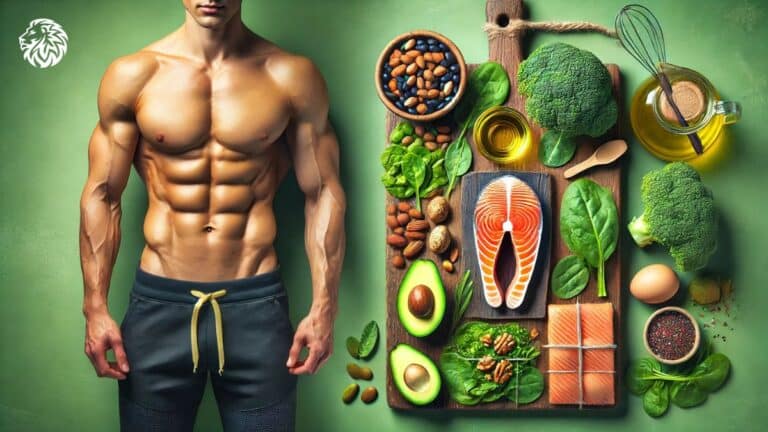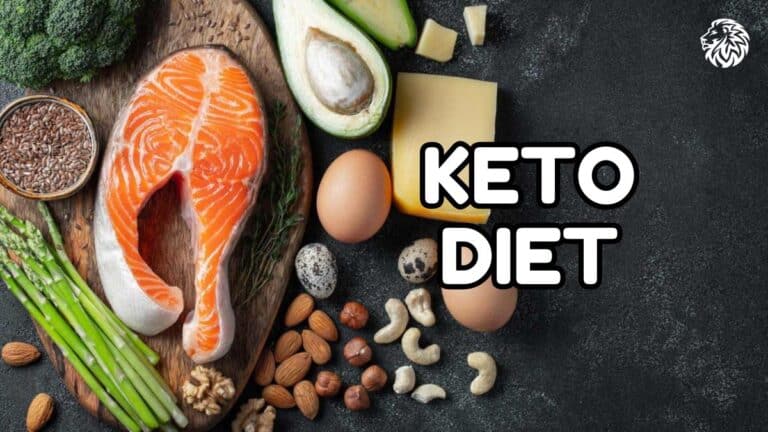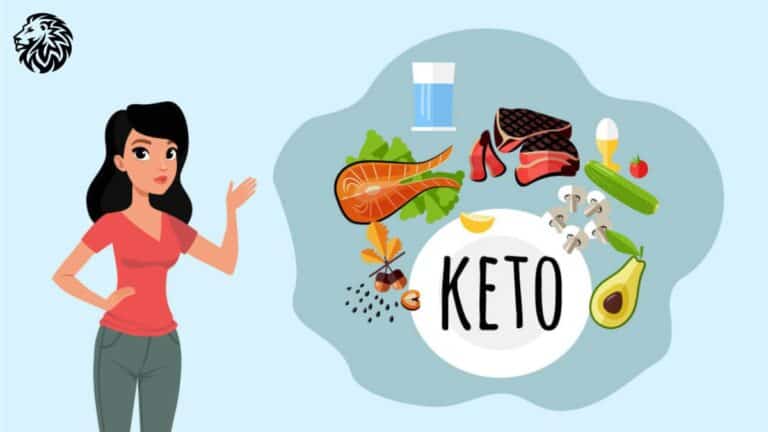Ketosis is a metabolic state where your body shifts from burning carbohydrates for fuel to burning fat. This switch is the hallmark of the ketogenic diet and is essential for losing weight, improving cognitive function, and addressing various health issues. However, figuring out if you’re in ketosis can be tricky without the use of blood, urine, or breath tests. Thankfully, there are several clear signs your body will give you to let you know you’re in ketosis—no testing required.
Here are nine signs that indicate you’re in ketosis:
9 Signs You’re in Ketosis
1. Keto Flu, Fatigue, and Keto Rash
When you first start a ketogenic diet, your body needs time to adjust. The transition period, which typically takes about two to three days depending on your carbohydrate intake, can bring on some uncomfortable symptoms. These include what’s commonly known as the “keto flu,” feelings of fatigue, and even a rash.
The keto flu occurs because your body is adapting to running on fat instead of glucose. You might experience headaches, muscle cramps, nausea, or general fatigue. These symptoms often happen because your body requires more electrolytes and B vitamins than usual. To minimize the chances of keto flu, make sure you’re consuming enough nutrients, particularly from nutrient-dense foods, and consider adding electrolytes and sea salt to your diet. Fatigue is another common symptom as your energy levels temporarily dip during the transition.
A keto rash can also develop during this phase. It’s not common for everyone but can be triggered by deficiencies in certain nutrients. Once your body adjusts, these symptoms typically subside, especially if you’re eating high-quality, nutrient-rich foods rather than relying solely on low-carb options without paying attention to food quality.
2. Weight Loss
Weight loss is one of the most well-known benefits of ketosis, and it’s one of the clearest signs you’re in ketosis. In the initial stages of the ketogenic diet, most people experience rapid weight loss. This isn’t just fat loss—it’s primarily water weight. When you reduce your carbohydrate intake, your body releases stored glucose, which is bound to water in your muscles. As this water is flushed out, you can lose anywhere from 7 to 14 pounds within the first couple of weeks.
After this initial drop, your weight loss will slow down to about 1 to 2 pounds per week, as fat loss begins. It’s important to recognize this phase shift. Many people feel discouraged when their rapid weight loss plateaus, not realizing that the body has switched from losing water to burning fat. A steady, sustainable rate of fat loss is around 2 pounds per week, although this can increase with practices like intermittent fasting, which can boost fat-burning even further.
3. Looser Clothes Around Your Midsection
Even if the scale isn’t moving as fast as you’d like, another clear sign of ketosis is losing inches around your waist. This happens because the ketogenic diet helps your body target visceral fat—the type of fat that wraps around your organs and accumulates around your midsection. As your body burns through this fat, your clothes will start to fit more loosely.
Visceral fat is particularly stubborn and harmful, linked to conditions like insulin resistance and metabolic syndrome. Reducing this fat not only slims your waistline but also has major health benefits. If you notice your midsection shrinking, it’s a great indicator that your body is effectively burning fat and you’re on the right track.
4. Increased Energy Levels
One of the most rewarding signs that you’re in ketosis is a noticeable increase in energy. When your body starts using fat for fuel, it taps into a much larger energy reserve than it ever had with glucose. Fat provides more than twice the calories per gram compared to carbohydrates, making it a more efficient and long-lasting energy source.
Instead of relying on constant carb intake to keep your energy up throughout the day, you’ll find that your energy becomes more stable. This is because your body no longer depends on external glucose for fuel. It can simply burn stored fat, giving you consistent energy. As a result, you won’t feel the highs and lows that come with eating carb-heavy meals and snacks.
5. Improved Cognitive Function
Another noticeable benefit of ketosis is improved brain function. People often report better focus, memory, and mental clarity while in ketosis. Ketones, which your body produces while in ketosis, are an excellent fuel source for your brain. Unlike glucose, ketones provide a cleaner and more efficient energy source for your neurons.
If you’ve had issues with brain fog, sluggishness, or difficulty concentrating, being in ketosis might make you feel sharper. Ketones can even help repair damaged neurons, which is why a ketogenic diet has been linked to potential benefits for people with neurodegenerative diseases like Alzheimer’s. Whether you’re working, studying, or simply going about your day, you’ll notice a significant boost in mental performance while in ketosis.
6. Reduced Inflammation and Pain
Ketones have anti-inflammatory properties, which can help reduce pain and inflammation. If you suffer from an inflammatory condition like arthritis or autoimmune issues, being in ketosis can provide significant relief. Many people report that their chronic pain subsides or becomes more manageable once they enter ketosis.
Inflammation is at the root of many chronic diseases, so reducing it can have a positive effect on your overall health. The ketogenic diet’s ability to lower inflammation is one of its key benefits beyond weight loss, especially for individuals dealing with chronic conditions.
7. Feeling More Satisfied After Meals
A great benefit of being in ketosis is that you feel more satisfied after meals. When you’re in ketosis, your body becomes more efficient at absorbing nutrients, thanks to improved insulin sensitivity. When insulin is working properly, it helps transport nutrients like amino acids and glucose into your cells.
This leads to feeling fuller after eating because your body is actually absorbing the nutrition it needs. Many people find that they no longer experience the constant hunger or food cravings they had before starting a ketogenic diet. You’ll eat less frequently and still feel satisfied for longer periods.
8. Improved Mood
Your mood may also improve once you’re in ketosis. People who struggle with anxiety or depression often find relief when following a ketogenic diet. This may be due to the brain’s increased access to ketones, which help regulate neurotransmitters that control mood.
There’s also evidence that insulin resistance in the brain can contribute to mood disorders. As ketosis improves insulin sensitivity and overall brain function, many people find themselves feeling happier and more stable emotionally.
9. Reduced Appetite
One of the most significant and welcome signs of ketosis is a reduction in appetite. When your body is in ketosis, it becomes highly efficient at using fat for energy. As a result, you’re less reliant on constant meals or snacks for energy. Your body is perfectly capable of using stored fat to keep you fueled between meals.
This reduced appetite makes it easier to maintain a ketogenic lifestyle long term, as you’re not fighting against constant hunger. In fact, many people find they naturally start eating fewer meals because they simply aren’t hungry as often. This lack of appetite is a clear indicator that your body is running on fat, not carbs.
Conclusion
Ketosis offers numerous benefits beyond weight loss. From improved mental clarity and energy to reduced inflammation and hunger, the signs of ketosis are hard to miss. If you’re experiencing several of these indicators, there’s a good chance your body has shifted into ketosis and is burning fat for fuel. The ketogenic diet, when done correctly with a focus on nutrient-dense foods, can help you achieve a healthy, sustainable state of ketosis, improving your overall well-being.
Frequently Asked Questions About Ketosis
How long does it take to enter ketosis?
It typically takes about 2–3 days of low carbohydrate intake to enter ketosis, depending on your diet and activity level.
What are common symptoms of entering ketosis?
You may experience symptoms like keto flu, fatigue, and keto rash during the transition, which usually improve as your body adapts.
How can I tell if I’m in ketosis without testing?
Signs of ketosis include weight loss, reduced appetite, improved mood, increased energy, and looser clothing around your waist.
Why do I lose weight so quickly at first on a ketogenic diet?
Initial rapid weight loss is usually due to water loss as your body depletes glycogen stores. Fat loss follows in the later stages.
Will my energy levels drop on a ketogenic diet?
Initially, you may feel tired, but once in ketosis, your energy levels will likely increase as your body efficiently burns fat for fuel.
Can ketosis improve cognitive function?
Yes, many people report better focus, memory, and mental clarity while in ketosis, as ketones provide efficient fuel for brain cells.
How does ketosis help with inflammation and pain?
Ketones have anti-inflammatory properties that can reduce pain and inflammation, especially in conditions like arthritis.
Why do I feel more satisfied after meals on a ketogenic diet?
In ketosis, improved insulin sensitivity allows your body to better absorb nutrients, leading to increased satiety after meals.
Does ketosis reduce appetite?
Yes, ketosis typically leads to reduced appetite, as your body efficiently uses stored fat for energy, reducing the need for constant meals.
References
- Paoli, A., Rubini, A., Volek, J. S., & Grimaldi, K. A. (2013). Beyond weight loss: A review of the therapeutic uses of very-low-carbohydrate (ketogenic) diets. European Journal of Clinical Nutrition, 67(8), 789–796. https://www.ncbi.nlm.nih.gov/pmc/articles/PMC5828461/
- Attia, A., & Tsuchiya, H. (2015). The molecular bases of cancer metabolism. Oncotarget, 6(29), 27382–27400. https://pubmed.ncbi.nlm.nih.gov/23651522/
- Volek, J. S., Noakes, T., & Phinney, S. D. (2015). Rethinking fat as a fuel for endurance exercise. European Journal of Sport Science, 15(1), 13–20. https://www.ncbi.nlm.nih.gov/pmc/articles/PMC4113752/
- Ludwig, D. S., & Ebbeling, C. B. (2018). The carbohydrate-insulin model of obesity: Beyond “calories in, calories out”. JAMA Internal Medicine, 178(8), 1098–1103. https://www.ncbi.nlm.nih.gov/pmc/articles/PMC6407543/
- Longo, V. D., & Mattson, M. P. (2014). Fasting: Molecular mechanisms and clinical applications. Cell Metabolism, 19(2), 181–192. https://www.ncbi.nlm.nih.gov/books/NBK499830/
- Phinney, S. D., & Volek, J. S. (2011). The art and science of low carbohydrate living: An expert guide to making the life-saving benefits of carbohydrate restriction sustainable and enjoyable. Beyond Obesity, LLC. https://pubmed.ncbi.nlm.nih.gov/28527061/
- Bueno, N. B., de Melo, I. S. V., de Oliveira, S. L., & da Rocha Ataide, T. (2013). Very-low-carbohydrate ketogenic diet v. low-fat diet for long-term weight loss: A meta-analysis of randomised controlled trials. British Journal of Nutrition, 110(7), 1178–1187. https://www.ncbi.nlm.nih.gov/pmc/articles/PMC5816269/
- Sumithran, P., Prendergast, L. A., Delbridge, E., Purcell, K., Shulkes, A., Kriketos, A., & Proietto, J. (2011). Ketosis and appetite-mediating nutrients after weight loss. Obesity, 19(2), 325–331. https://www.ncbi.nlm.nih.gov/pmc/articles/PMC5506682/







